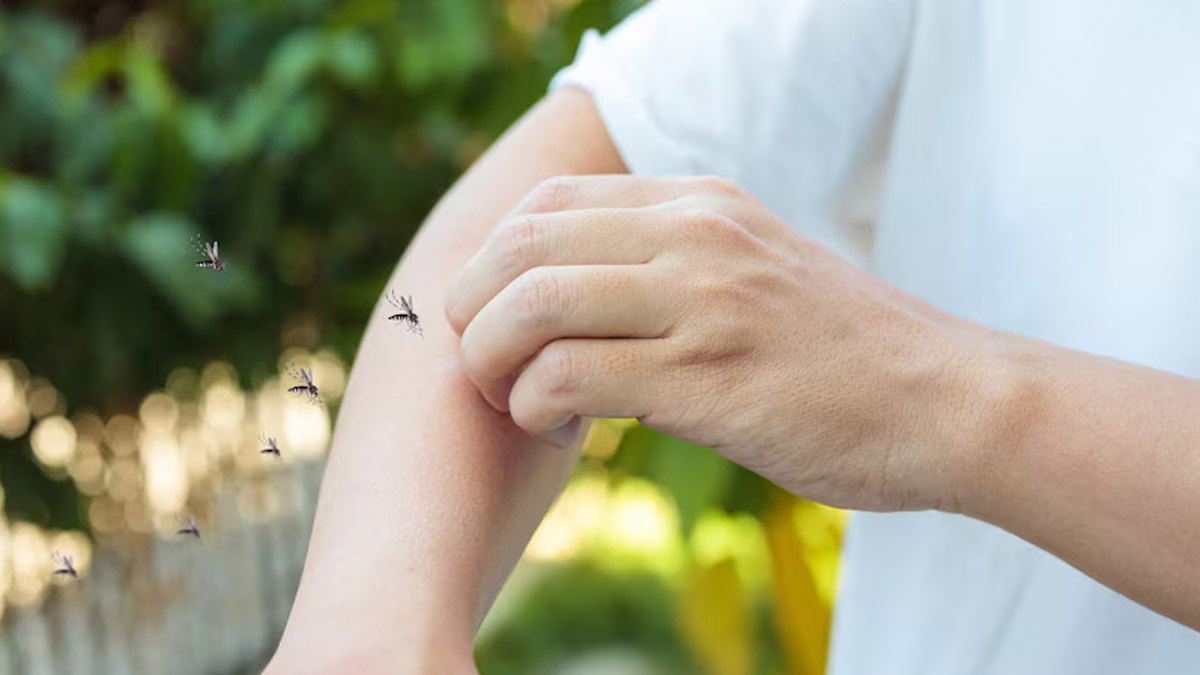
Ever wondered why some people seem to be mosquito magnets while others hardly get bitten? The answer lies in the complex interplay of skin chemistry and genetics. Mosquitoes are known to be drawn to certain skin compounds, making some individuals irresistible to these pests. Recent research has uncovered that certain skin compounds, particularly carboxylic acids produced by bacteria on the skin, make some individuals significantly more attractive to mosquitoes. These findings not only explain the persistent annoyance some people face but also open the door to new methods for repelling these disease-carrying insects. Understanding the science behind this attraction could lead to better methods of preventing mosquito bites and the diseases they transmit.
Table of Content:-
The Role of Skin Compounds

One of the key findings in recent studies is that the composition of skin odor plays a significant role in attracting mosquitoes. The most attractive individuals to mosquitoes tend to have higher levels of carboxylic acids on their skin. These acids are produced by the natural breakdown of sebum, an oily substance secreted by the skin. When beneficial bacteria on the skin metabolize this sebum, they produce carboxylic acids, which create an odor similar to stinky cheese. Mosquitoes, particularly the Aedes aegypti species known for spreading diseases like dengue and Zika, are especially drawn to this scent.
A study conducted by Rockefeller University involved a "tournament" where the odors of different participants were compared to see which ones attracted the most mosquitoes. The results were clear: individuals with higher levels of carboxylic acids were consistently more attractive to mosquitoes, with some people being 144 times more appealing than others.
Also read: Mosquito-Mukt india: How Climate Shifts Are Escalating Mosquito-Borne Illnesses
Genetic Factors and Consistency
The attraction to certain people is not random but rather consistent over time. For instance, in the Rockefeller study, the most attractive participant maintained their "mosquito magnet" status throughout the study. This suggests that genetic factors may influence the production of skin compounds that attract mosquitoes. These findings indicate that people who are highly attractive to mosquitoes might always be so, making them more vulnerable to mosquito-borne diseases.

Mosquitoes’ Sensory Mechanisms
Mosquitoes rely on a combination of sensory cues to locate their human targets, including carbon dioxide, body heat, and skin odor. Carbon dioxide, in particular, is a strong attractant that can keep mosquitoes excited and hunting for up to 15 minutes after initial detection. However, skin odor, influenced by the presence of carboxylic acids, seems to be a critical factor in why some people get bitten more than others.
Also read: How to Stop Symptoms Of Mosquito-Borne Infections From Getting Worse
Researchers are hopeful that these discoveries could lead to new ways to alter human skin chemistry, potentially making people less attractive to mosquitoes. Such advancements could be crucial in reducing the spread of mosquito-borne diseases, which continue to pose a significant global health threat.
Conclusion
While more research is needed, the link between skin compounds and mosquito attraction offers promising avenues for developing new repellents or treatments. By understanding why mosquitoes prefer certain people, scientists may be able to devise strategies to make everyone less appealing to these pesky and potentially dangerous insects.
Also watch this video
How we keep this article up to date:
We work with experts and keep a close eye on the latest in health and wellness. Whenever there is a new research or helpful information, we update our articles with accurate and useful advice.
Current Version